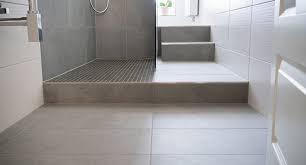
The diverse picks available for bathroom flooring are big: ceramic tiles, porcelain tiles, herbal stone, mosaics, pebble tiles, wooden, and vinyl. But a lavatory is, by its very nature, moist, humid surrounding, so some selections are higher than others. We also need to bear in mind our consolation and how we use our restroom. Is it an area for a quick shower earlier than dashing off in the early morning to work, or is it a haven from a busy family life in which you like to wallow in a big bath with scented candles, an excellent e-book and a glass of wine? How you usually use your lavatory will determine the most appropriate flooring alternative for you.
A bathroom floor should not have the most effective appearance appealing but, additionally, be difficult-sporting and smooth to easy. Your finances for new flooring will even affect your desire – if you have to set up the floors yourself, then the ease of installation may be an issue you must remember. So right here, we take a look at the primary selections to be had.
Natural Stone
All types of natural stone, which includes marble, limestone, slate and granite, are enduringly famous choices due to their costly feel and appearance and due to their particular splendor. There is not any mistaking limestone ground – even the fine reproductions do now not come near creating the same personal look. Natural stone floors are likewise very long-lasting and resistant to moisture, providing its miles dealt with and maintained appropriately. It additionally gives a number of hues and textures to match all bathroom interiors. The negative aspects are the high cost of buying and also of set up in addition to ongoing upkeep, depending on the sort of tile chosen.
Wood
Wooden floors in toilets shown in interior layout magazines can look exceptionally appealing, and lots of period houses have lovely timber flooring already in situ; however, top wooden floors aren’t a specially practical choice in a restroom as it is not water resistant. However, if you want the natural appearance of timber but are searching for a practical alternative, then a timber impact vinyl ground or a number of today’s charming timber-effect porcelain tiles could be an extra sensible desire.
Vinyl
Vinyl floors have fallen in recognition until currently, while new designs have helped it to regain some of it is past popularity as an alternative to timber and tough tiling, which includes ceramic, porcelain or natural stone. It has many benefits: it’s far cheaper, smooth to lay and smooth to hold clean. It is likewise warm underfoot, which is a critical factor in cold climates. With superb designs now to be had to simulate wooden and herbal stone, it is growing in recognition. Its best drawback is that it isn’t exceptionally hard-wearing in comparison to different types of floors.
Ceramic Tiles
Ceramic tiles are, unsurprisingly, one of the favorite selections for lavatory flooring – they’re incredibly cheaper to buy, easy to cut and lay and are available in a massive variety of colors, designs and sizes to fit every form of lavatory from the most conventional to the extremely-contemporary. They are tough-wearing, clean to clean and immune to moisture. Perhaps the only downside is that any chips that appear over the years are major because the color and/or pattern of a ceramic tile is most straightforward on the surface, so the underlying tile color will show if the tile is broken. This may be a problem if the tile color is dark and the underlying coloration is light.
Porcelain Tiles
Porcelain tiles have all the blessings of ceramic tiles: an extensive choice of colors, designs and textures, and they’re clean to preserve clean. They also are available in plenty of large sizes, which are famous for an exceptionally contemporary look and are plenty extra hard-sporting. If they do chip, the harm might be a great deal less great than with ceramic tiles because porcelain tiles have the color and pattern strolling right via the body of the tile. They are greater high-priced to buy than ceramic tiles and extra highly-priced to lay because of their very hardness, which makes porcelain tiles more excellent and hard to reduce – often requiring a professional tile-slicing device.

